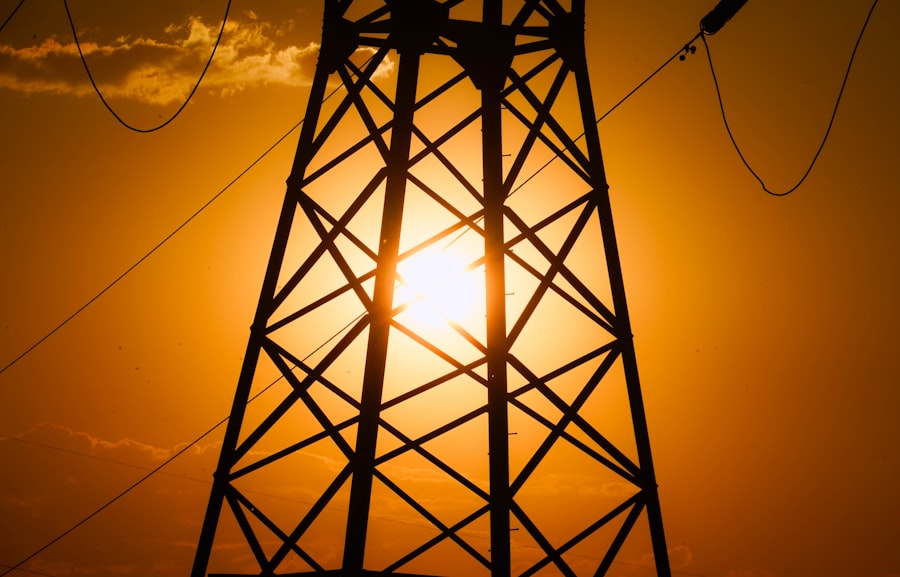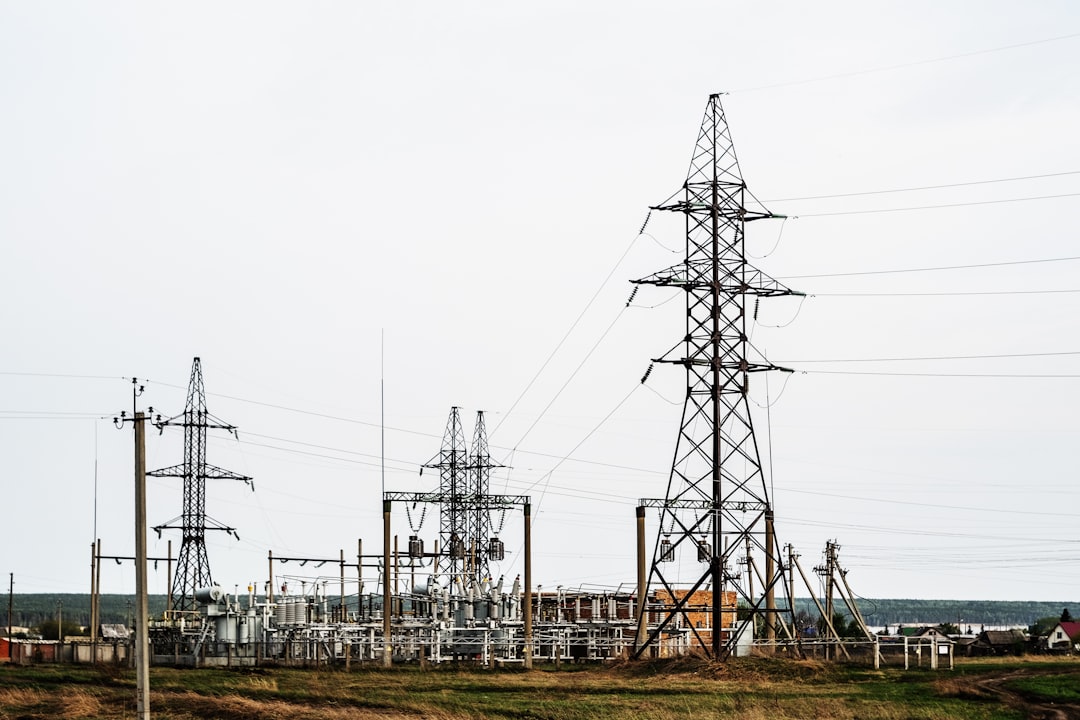In recent years, the utility industry has witnessed a significant transformation, marked by the increasing presence of private equity firms. This shift can be attributed to a combination of factors, including the need for substantial capital investment in aging infrastructure, the push for modernization, and the growing demand for sustainable energy solutions. Private equity firms, with their vast financial resources and expertise in operational efficiency, have identified utilities as lucrative investment opportunities.
As traditional utility companies grapple with regulatory pressures and the need for innovation, private equity has stepped in, promising to revitalize these essential services. The rise of private equity in the utility sector is not merely a trend; it represents a fundamental change in how these critical services are managed and financed. Historically, utilities were predominantly publicly owned or operated as monopolies under strict regulatory oversight.
However, as the landscape evolves, private equity firms are increasingly acquiring stakes in utility companies, reshaping the dynamics of ownership and management. This shift raises important questions about the future of utility services and their alignment with public interests.
Key Takeaways
- Private equity firms are increasingly acquiring utility companies, reshaping the industry landscape.
- Consumer impacts include potential changes in service quality, pricing, and investment priorities.
- Regulatory bodies face challenges in overseeing private equity-owned utilities to ensure fair practices.
- Private equity plays a significant role in infrastructure investment, balancing profit motives with sustainability goals.
- The debate continues over public versus private ownership, with consumers encouraged to stay informed and advocate for their interests.
How Private Equity Firms Are Acquiring Utility Companies
Private equity firms are employing various strategies to acquire utility companies, often leveraging their financial clout to outbid traditional investors. One common approach involves forming partnerships with existing utility operators or investing in distressed assets that require significant turnaround efforts. By injecting capital and expertise into these companies, private equity firms aim to enhance operational efficiency and drive profitability.
This strategy not only allows them to acquire valuable assets but also positions them to capitalize on the growing demand for reliable and sustainable energy solutions. Moreover, private equity firms are increasingly targeting renewable energy projects as part of their acquisition strategy. With global attention shifting towards sustainability and carbon reduction, these firms recognize the potential for substantial returns on investments in solar, wind, and other renewable energy sources.
By acquiring utility companies that are transitioning towards greener practices, private equity firms can align their portfolios with market trends while contributing to environmental goals. This dual focus on profitability and sustainability is reshaping the utility landscape and attracting further investment from private equity.
The Impact on Consumers: What to Expect

The entry of private equity into the utility sector has significant implications for consumers.
Private equity firms often bring innovative management practices and operational efficiencies that can enhance service delivery.
Additionally, with a focus on modernization and infrastructure upgrades, consumers may benefit from more reliable energy sources and improved customer service. However, there are also concerns regarding the potential negative impact on consumers. Critics argue that profit-driven motives may lead to higher rates as private equity firms seek to maximize returns on their investments.
Furthermore, there is apprehension about the long-term commitment of these firms to community interests, especially if they prioritize short-term gains over sustainable practices. As private equity continues to reshape the utility landscape, consumers must remain vigilant about how these changes affect their access to affordable and reliable services.
Regulatory Concerns and Oversight of Private Equity-Owned Utilities
| Metric | Description | Typical Range/Value | Regulatory Concern |
|---|---|---|---|
| Rate of Return on Equity (ROE) | Percentage return allowed by regulators on equity investments | 8% – 12% | Ensuring fair returns without overburdening consumers |
| Debt-to-Equity Ratio | Measure of financial leverage used by utility | 1.0 – 2.5 | Risk of excessive leverage impacting service reliability |
| Capital Expenditure (CapEx) Levels | Annual investment in infrastructure and upgrades | Varies by utility size and region | Ensuring adequate investment for system reliability and modernization |
| Service Reliability Metrics (SAIDI/SAIFI) | System Average Interruption Duration/Frequency Index | SAIDI: 60-120 minutes/year; SAIFI: 1-2 interruptions/year | Monitoring impact of ownership on service quality |
| Customer Complaint Rates | Number of complaints per 1,000 customers annually | 5 – 15 complaints | Indicator of customer satisfaction and service issues |
| Regulatory Compliance Violations | Number of violations or penalties imposed | 0 – 3 per year | Ensuring adherence to regulatory standards and laws |
| Ownership Transparency | Disclosure level of private equity ownership and structure | High/Medium/Low | Concerns about accountability and influence on utility decisions |
The rise of private equity in the utility sector has prompted increased scrutiny from regulators and policymakers. The unique nature of private equity ownership raises questions about accountability, transparency, and consumer protection. Regulators are tasked with ensuring that private equity-owned utilities operate in the public interest while balancing the need for investment and innovation.
This challenge is compounded by the complex financial structures often employed by private equity firms, which can obscure true ownership and operational control. To address these concerns, regulatory bodies are exploring new frameworks for oversight that specifically target private equity-owned utilities. This may include enhanced reporting requirements, stricter guidelines on rate increases, and mechanisms to ensure that consumer interests are prioritized.
As the landscape evolves, regulators must adapt to the changing dynamics of ownership while safeguarding the rights and needs of consumers.
The Role of Private Equity in Infrastructure Investment
Private equity’s involvement in infrastructure investment is a critical aspect of its growing influence in the utility sector. With aging infrastructure posing significant challenges for many utility companies, private equity firms are stepping in to provide much-needed capital for upgrades and modernization efforts. This influx of investment can lead to improved reliability and efficiency in service delivery, ultimately benefiting consumers.
Moreover, private equity firms are increasingly focusing on sustainable infrastructure projects that align with global environmental goals. Investments in renewable energy sources, smart grid technology, and energy efficiency initiatives are becoming more common as these firms recognize the long-term value of sustainable practices. By prioritizing infrastructure investment that supports both economic growth and environmental stewardship, private equity is playing a pivotal role in shaping the future of utilities.
The Pros and Cons of Private Equity Ownership in the Utility Sector

The debate surrounding private equity ownership in the utility sector is multifaceted, encompassing both advantages and disadvantages. On one hand, proponents argue that private equity brings much-needed capital and expertise to an industry facing significant challenges. The infusion of resources can lead to improved operational efficiencies, enhanced customer service, and accelerated innovation.
Additionally, private equity firms often have a track record of successfully managing complex businesses, which can translate into better performance for utility companies. Conversely, critics raise concerns about the potential downsides of privatization in essential services like utilities. The profit-driven nature of private equity may lead to cost-cutting measures that compromise service quality or result in higher rates for consumers.
Furthermore, there is apprehension about the long-term commitment of private equity firms to community interests, particularly if they prioritize short-term gains over sustainable practices.
Environmental and Social Responsibility: Private Equity’s Role in Sustainable Practices
As global awareness of environmental issues continues to grow, private equity firms are increasingly recognizing their role in promoting sustainability within the utility sector. Many firms are adopting environmental and social governance (ESG) criteria as part of their investment strategies, seeking to align their portfolios with sustainable practices. This shift is not only driven by regulatory pressures but also by consumer demand for environmentally responsible services.
Private equity’s involvement in renewable energy projects exemplifies this commitment to sustainability. By investing in solar farms, wind energy projects, and energy efficiency initiatives, these firms are contributing to a cleaner energy future while also positioning themselves for long-term profitability. Additionally, many private equity firms are actively engaging with communities to address social responsibility concerns, ensuring that their investments benefit local populations and contribute positively to society.
The Future of Utility Ownership: Trends and Predictions
Looking ahead, the future of utility ownership is likely to be shaped by several key trends driven by private equity’s increasing presence. One notable trend is the continued emphasis on sustainability and renewable energy sources. As governments around the world implement stricter environmental regulations and consumers demand greener options, private equity firms will likely focus on acquiring utilities that prioritize clean energy initiatives.
Another trend is the growing importance of technology in utility management. The rise of smart grids, data analytics, and digital customer engagement tools will transform how utilities operate and interact with consumers. Private equity firms that invest in innovative technologies will be well-positioned to capitalize on these advancements while enhancing service delivery.
Challenges and Opportunities for Private Equity-Owned Utilities
While private equity-owned utilities present numerous opportunities for growth and innovation, they also face significant challenges. One major challenge is navigating regulatory environments that may not be fully equipped to address the complexities of private ownership. As regulators adapt to this new landscape, private equity firms must remain proactive in engaging with policymakers to ensure that their interests align with public needs.
Additionally, competition within the utility sector is intensifying as new players enter the market. Private equity-owned utilities must differentiate themselves by delivering exceptional service quality while managing costs effectively. This competitive pressure can drive innovation but also requires a keen focus on operational efficiency.
The discussion surrounding public versus private ownership of utilities remains a contentious issue as private equity continues to gain traction in the sector. Advocates for public ownership argue that essential services like utilities should remain under government control to ensure accountability and prioritize public interests over profit motives. They contend that public ownership fosters transparency and allows for greater community engagement in decision-making processes.
On the other hand, proponents of private ownership assert that competition and investment from private equity can lead to improved services and lower costs for consumers. They argue that private firms bring expertise and efficiency that can enhance operational performance while driving innovation within the industry. As this debate unfolds, it is crucial for stakeholders to consider the implications of both ownership models on service delivery and consumer welfare.
What Consumers Can Do to Stay Informed and Advocate for Their Interests
In an era where private equity plays an increasingly prominent role in the utility sector, consumers must take proactive steps to stay informed about changes affecting their services. Engaging with local advocacy groups or consumer organizations can provide valuable insights into how privatization impacts rates and service quality. Additionally, consumers should participate in public hearings or forums where utility decisions are discussed to voice their concerns and preferences.
Furthermore, staying informed about regulatory developments is essential for consumers who wish to advocate for their interests effectively. Understanding how regulatory bodies oversee private equity-owned utilities can empower consumers to hold these companies accountable for their actions. By remaining engaged and informed, consumers can play a vital role in shaping the future of utility ownership while ensuring that their needs are prioritized amidst ongoing changes in the industry.
In recent discussions surrounding private equity’s increasing involvement in utility takeovers, it’s essential to consider the broader implications of such investments on public services and consumer rates. A related article that delves into the nuances of this trend can be found at How Wealth Grows, where it explores the potential benefits and drawbacks of private equity ownership in essential services. This analysis provides valuable insights for stakeholders and consumers alike.
WATCH THIS! The Debt Trap: Why Private Equity Wants Your Power Company
FAQs
What is a private equity utility takeover?
A private equity utility takeover occurs when a private equity firm acquires a utility company, which typically provides essential services such as electricity, water, or gas to consumers.
Why do private equity firms invest in utility companies?
Private equity firms invest in utility companies because these businesses often have stable cash flows, regulated revenue streams, and long-term contracts, making them attractive for generating steady returns.
How does a private equity takeover affect utility customers?
The impact on customers can vary; some takeovers may lead to improved efficiency and service, while others might result in higher rates or reduced investment in infrastructure, depending on the new owners’ management strategies.
Are private equity takeovers of utilities regulated?
Yes, utility takeovers are subject to regulatory approval by government agencies to ensure that the acquisition does not harm public interest, maintain service reliability, and protect consumers from unfair pricing.
What are the potential risks of a private equity utility takeover?
Potential risks include increased debt levels for the utility, cost-cutting measures that may affect service quality, and a focus on short-term profits over long-term infrastructure investment.
How do private equity firms typically finance utility takeovers?
Private equity firms often use a combination of equity and significant amounts of debt financing (leveraged buyouts) to acquire utility companies.
Can private equity ownership improve utility company performance?
In some cases, private equity ownership can lead to operational improvements, cost efficiencies, and strategic growth; however, outcomes depend on management decisions and market conditions.
What happens to utility employees after a private equity takeover?
Employee outcomes vary; some may experience restructuring or layoffs, while others may benefit from new investment and growth opportunities under private equity ownership.
Are private equity utility takeovers common?
While less common than in other industries, private equity takeovers of utilities have increased in recent years due to the sector’s stable cash flows and infrastructure needs.
How can the public stay informed about private equity utility takeovers?
Public information is typically available through regulatory filings, company announcements, news reports, and public utility commission hearings.
